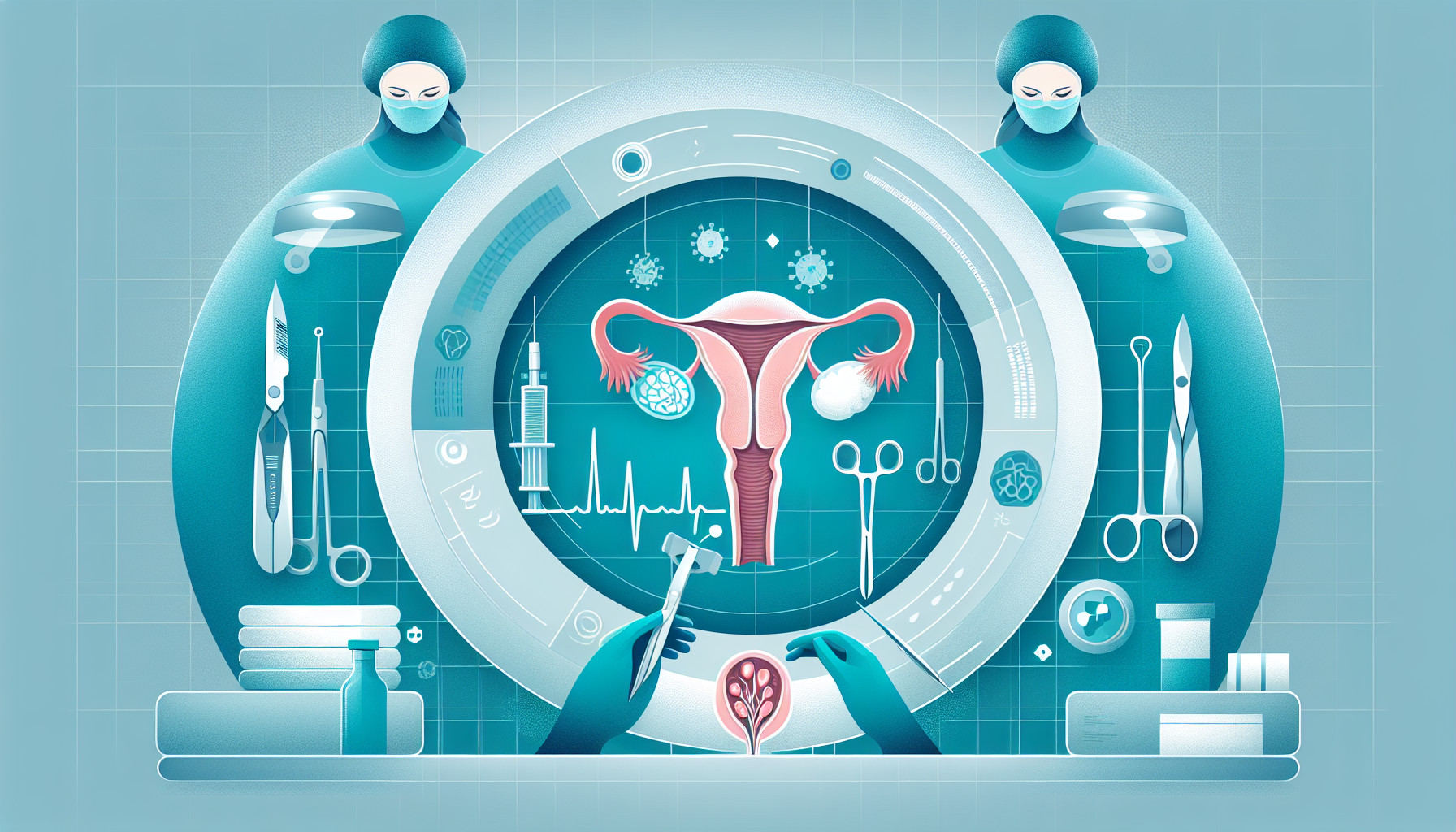Our Summary
Pregnant women have a higher risk of experiencing complications from ovarian cysts, especially larger ones, which can cause problems during childbirth. Emergency surgery for these cysts is riskier than planned surgery. However, a type of minimal invasive surgery called laparoscopic surgery can be performed safely during pregnancy. This study presents three cases where large ovarian cysts were successfully removed during pregnancy using a specific technique called single-port laparoscopic surgery. This method only requires one entry point for the surgical tools, reducing potential complications. All patients who elected for this surgery had no complications during or after the procedure, and were able to carry their pregnancies to full term and deliver their babies naturally. Therefore, this type of surgery can be a good option for removing ovarian cysts during pregnancy.
FAQs
- What are the risks associated with ovarian cysts in pregnant women?
- What is single-port laparoscopic surgery and why is it used for ovarian cyst removal during pregnancy?
- What were the outcomes for patients who underwent single-port laparoscopic surgery for ovarian cyst removal during pregnancy?
Doctor’s Tip
It is important to discuss all potential risks and benefits with your doctor before undergoing any type of surgery for ovarian cyst removal. It is also important to follow all post-operative care instructions provided by your healthcare provider to ensure a smooth recovery.
Suitable For
Similarly, patients with ovarian cysts that are causing severe symptoms such as intense pain, bloating, difficulty urinating or bowel movements, or are at risk of rupture or torsion may also be recommended for ovarian cyst removal. Additionally, patients with cysts that are suspicious for cancer or are growing rapidly may also be candidates for surgical removal.
Patients who have recurrent ovarian cysts or have a family history of ovarian cancer may also be recommended for cyst removal as a preventive measure. In some cases, cyst removal may be recommended for infertility treatment, as large cysts can interfere with the normal function of the ovaries and affect fertility.
Overall, the decision to recommend ovarian cyst removal is based on the individual patient’s symptoms, risk factors, and overall health, and should be made in consultation with a healthcare provider.
Timeline
- Before ovarian cyst removal:
- Patient experiences symptoms such as pelvic pain, bloating, and changes in menstrual cycle.
- Patient undergoes imaging tests such as ultrasound or MRI to confirm the presence of an ovarian cyst.
- Patient may undergo blood tests to check for tumor markers.
- Patient discusses treatment options with their healthcare provider, including the possibility of surgery.
- Patient may need to undergo additional tests to assess the size and type of the cyst.
- After ovarian cyst removal:
- Patient undergoes pre-operative preparation, including fasting and medication adjustments.
- Surgery is performed to remove the ovarian cyst, either through laparoscopic or open surgery.
- Patient is monitored in the recovery room for any immediate complications.
- Patient is discharged from the hospital and given post-operative instructions for care at home.
- Patient may experience some pain, discomfort, and fatigue in the days following surgery.
- Patient attends follow-up appointments with their healthcare provider to monitor their recovery and ensure there are no complications.
- Patient may need to undergo additional imaging tests to confirm the cyst has been completely removed.
- Patient resumes normal activities and gradually returns to their usual routine.
- Patient continues to be monitored for any recurrence of ovarian cysts in the future.
What to Ask Your Doctor
- What are the risks and benefits of removing the ovarian cyst during pregnancy?
- Will removing the ovarian cyst affect my ability to carry the pregnancy to full term?
- What is the recommended timing for the surgery during pregnancy?
- What type of surgery will be performed to remove the ovarian cyst?
- How long will the recovery process be after the surgery?
- Will there be any impact on the baby during or after the surgery?
- Are there any alternative treatment options for the ovarian cyst during pregnancy?
- What are the potential complications associated with the surgery?
- Will I need any follow-up care or monitoring after the surgery?
- How will removing the ovarian cyst affect my future fertility?
Reference
Authors: Misawa A, Okubo MM, Nagae S, Yokomizo R, Aoki H, Takanashi H. Journal: J Surg Case Rep. 2023 Jun 20;2023(6):rjad345. doi: 10.1093/jscr/rjad345. eCollection 2023 Jun. PMID: 37346456
